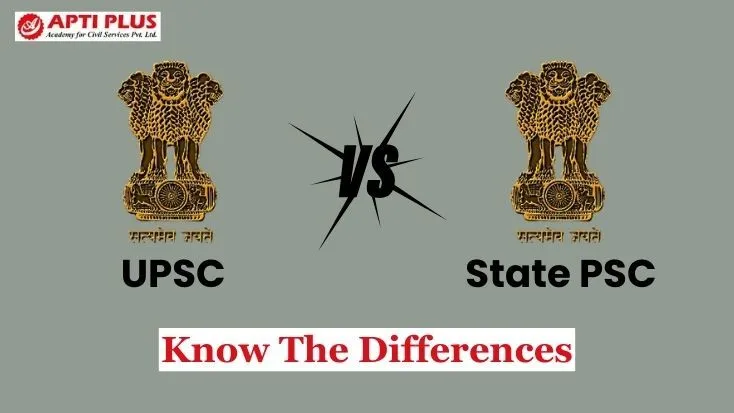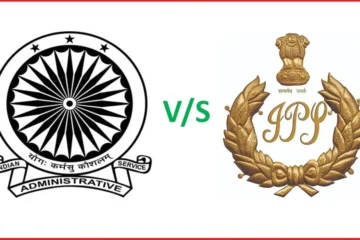Differences Between UPSC vs. State PSC Exams
Candidates frequently need help in the maze-like civil services examination process, choosing between the UPSC and State PSC exams. Becoming a civil servant requires careful planning, strategic preparation, and a deep comprehension of the varied landscapes these tests cover. To get over the complexity of the exam process, candidates often turn to civil services coaching centres for advice and search online for UPSC online coaching resources. Understanding the subtle differences between the State Public Service Commission (PSC) and Union Public Service Commission (UPSC) exams is essential, regardless of one’s desire to pass them. This post will examine the main differences between the UPSC and State PSC exams to help you decide which best suits your professional goals.
Jurisdiction and Scope
Exam jurisdiction and scope are the most fundamental and distinguishing differences between UPSC and State PSC exams. State PSCs function at the state level, whereas UPSC conducts exams nationally. In the Indian Administrative Service (IAS), Indian Police Service (IPS), Indian Foreign Service (IFS), and other esteemed all-India services, the UPSC exam offers access to highly sought-after opportunities. On the other hand, State PSC examinations open doors to state-level government agencies such as the State Forest Service, State Police Service, and State Civil Service.
Eligibility Criteria
Candidates should review their age restrictions before selecting between UPSC and State PSC. The UPSC Exam has age limits of 21 years old for the lower limit, 32 years old for the higher limit, and graduation from any stream is required. On the other hand, candidates for the State PSC Exam must be graduates, and the state government sets the minimum and upper age limits for eligibility.
If you are especially seeking the state PSC like Odisha Civil Service syllabus, it is available on the Odisha Public Service Commission’s official website (OPSC).
Syllabus
With a few variations, the syllabus for the UPSC and State PSC exams is nearly identical. The UPSC incorporates both national and international current events. The geography curriculum covers not just India but the whole globe. On the other hand, current events for the State PSC exam are exclusive to the state for which you are taking it.
If candidates have studied for UPSC, State PSC often covers 80% to 90% of the syllabus. Thus, you can prepare for both tests simultaneously.
The syllabus for the State PSC is available for download on the State PSC website.
Exam Pattern
Prelims, Mains, and Personality Tests are the three phases of the recruitment exams offered by both the State Public Service Commission and the Union Public Service Commission.
We can conclude that both of them employ comparable recruitment strategies. The only distinctions between them are the maximum marks and the kinds of questions answered. Other than that, their test formats are comparable.
For example, UPSC questions are geared toward analytical skills, while State PSC questions are based on content knowledge that tests your recall ability.
There are two papers in the UPSC preliminary exams. There are 80 questions in the CSAT paper and 100 in the GS Paper I. Each paper is two hours long and has 200 marks.
Overall, there are nine papers in the UPSC Mains exam. Each paper is three hours long and has 250 marks.
However, each state has a different maximum score and number of PSC questions.
Competition and Challenges
UPSC exams are known for their intense rivalry and high difficulty level. Many applicants from all over the nation compete for a few positions in all-India services. Exams like this are notorious for being unpredictable and requiring a wide range of knowledge.
Although State PSC examinations are tough, the number of applicants may be lower than for UPSC exams. State-by-state variations in the degree of difficulty may occur due to the unique recruitment guidelines set forth by the individual State PSCs.
Language and Regional Focus
Exams for state PSCs may strongly emphasise proficiency in the region’s language and knowledge of local concerns. Examining candidates’ understanding of issues unique to each state is a common practice. On the other hand, the primary languages used in UPSC examinations are Hindi and English; a thorough understanding of any other regional language is optional.
Reservation and Domicile Criteria
State PSC tests frequently include residency requirements and reservation rules that give preference to applicants from that state. These regulations aim to guarantee that a specific proportion of posts are set aside for applicants from the state or particular groups, such as economically disadvantaged groups (EWS), Scheduled Castes (SC), Scheduled Tribes (ST), Other Backward Classes (OBC), or Scheduled Castes (SC). The national UPSC examination process needs to incorporate state-specific reservation policies.
The Bottom Line
The decision between the UPSC and State PSC exams comes down to your preferences, level of competitiveness tolerance, and career goals. State PSC exams offer a platform to work closely with state governments and address local concerns, while UPSC provides a chance to serve at the national level and opens doors to renowned services. Both options ultimately lead to rewarding and significant careers in public service. It’s critical to carefully consider your options and come to a decision that plays to your interests and strengths. Regardless of your selection, success will largely depend on commitment, diligence, and deep comprehension of the syllabus and exam format.
Disclaimer- Selecting the best coaching for UPSC can be daunting for individuals who want to compete in the UPSC. Investigate institutions that provide UPSC coaching programs or IAS foundation courses to assist you in navigating this.





